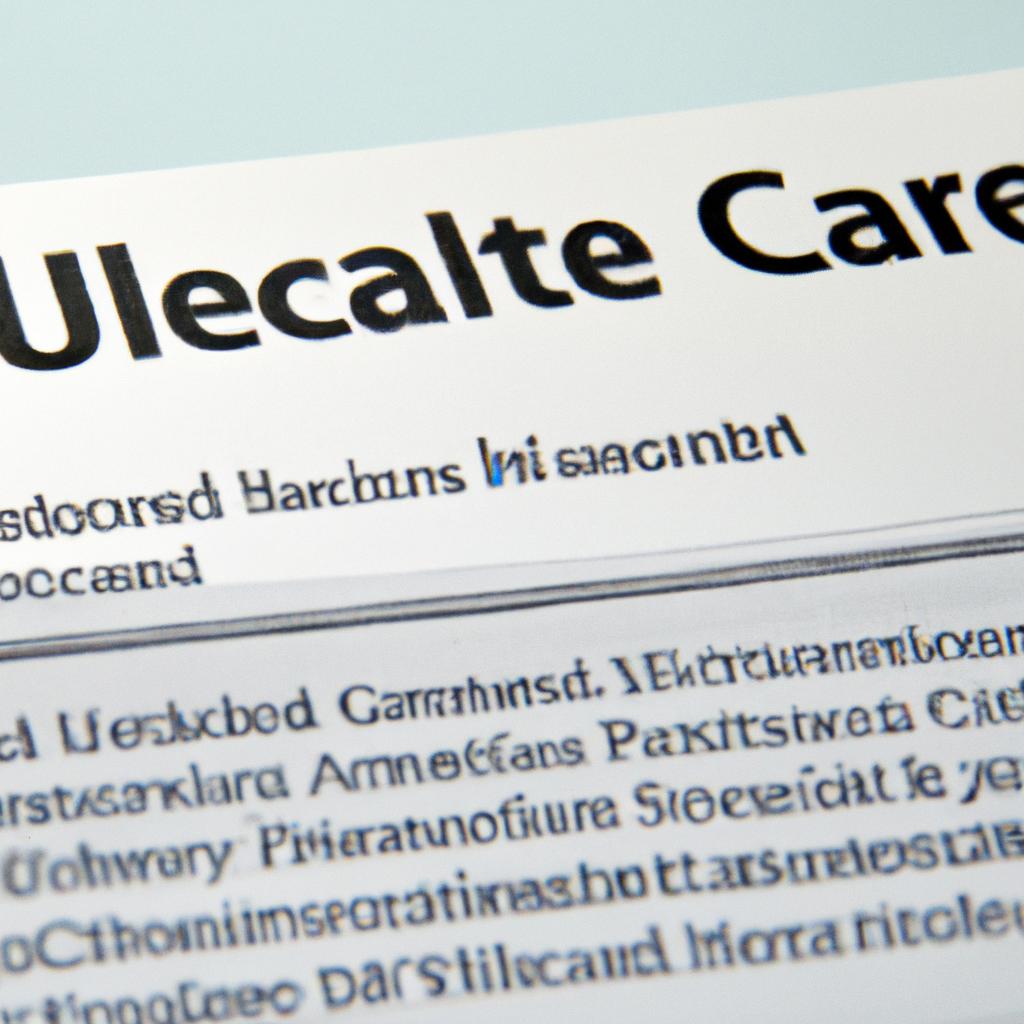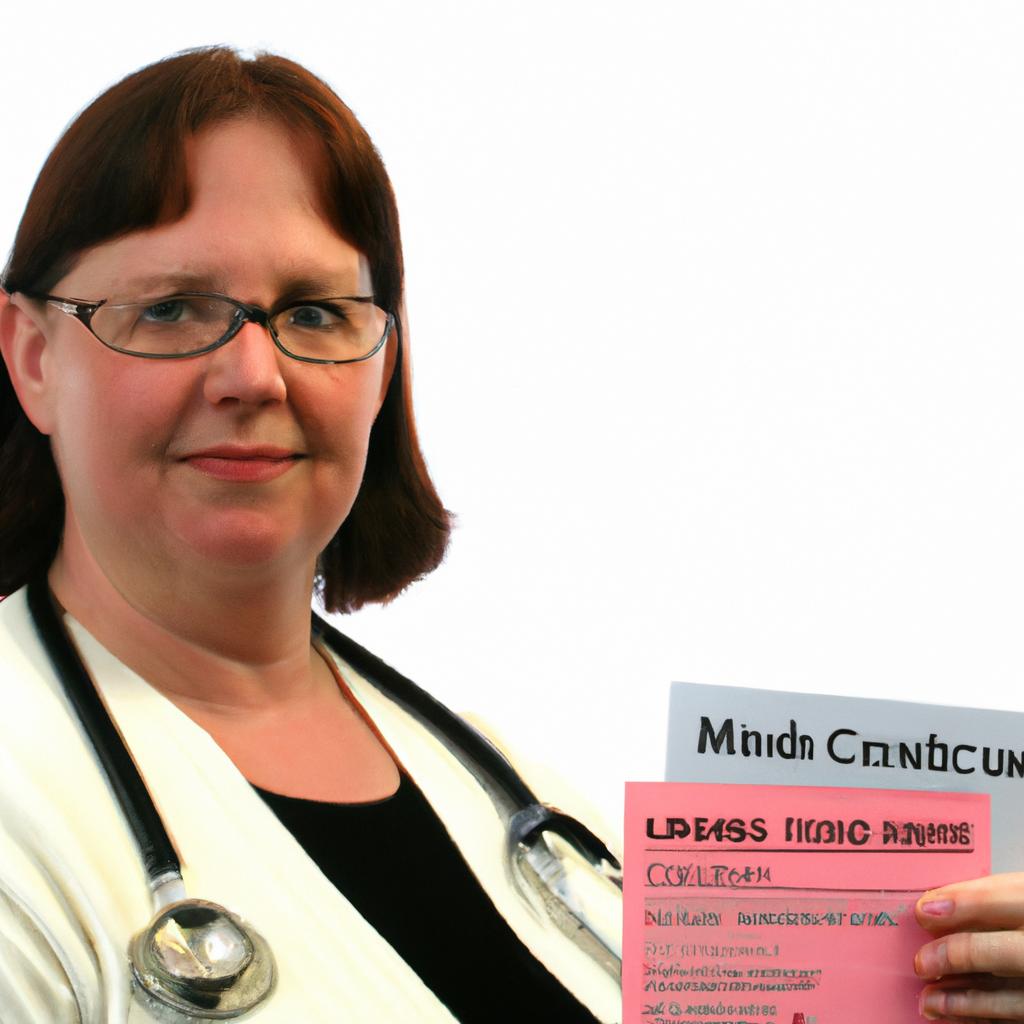Ensure quality care and trust with united healthcare provider credentialing. Learn about the process, benefits, and importance for healthcare professionals and patients.
In today’s fast-paced healthcare industry, it is crucial to ensure that healthcare providers meet stringent standards to deliver quality care. United Healthcare Provider Credentialing plays a vital role in this process, guaranteeing the competence and credibility of healthcare professionals. But what exactly is United Healthcare Provider Credentialing?
United Healthcare Provider Credentialing refers to the rigorous evaluation and verification process undertaken by United Healthcare to assess the qualifications, training, experience, and ethical standing of healthcare providers. This process ensures that only the most qualified and trustworthy professionals are allowed to participate in the United Healthcare network.
Why is United Healthcare Provider Credentialing Important?

When you seek healthcare services, you want to be confident that you are receiving care from a highly qualified and reliable provider. United Healthcare Provider Credentialing offers several benefits that contribute to your peace of mind and the overall quality of care you receive.
First and foremost, credentialing enhances patient safety. By thoroughly vetting healthcare providers, United Healthcare minimizes the risk of medical errors, ensuring that you are in capable hands. Additionally, the credentialing process promotes improved quality of care by holding providers accountable for their performance and adherence to industry standards.
Defining United Healthcare Provider Credentialing

United Healthcare Provider Credentialing involves a comprehensive evaluation process that examines various aspects of a healthcare provider’s professional background. This includes verifying their education, training, licensure, certifications, and professional experience. Furthermore, extensive checks are conducted to assess malpractice history and criminal background, ensuring patient safety and trust.
By implementing such a rigorous credentialing process, United Healthcare reaffirms its commitment to providing top-notch healthcare services. It assures you that the providers within its network meet the highest industry standards, instilling confidence and trust in the care you receive.
Stay tuned for the next section, where we will delve deeper into the benefits of United Healthcare Provider Credentialing and how it safeguards the quality of care you deserve. So, how does this process benefit you as a patient? Let’s find out!
Benefits of United Healthcare Provider Credentialing
When it comes to your healthcare, nothing is more important than your safety and the quality of care you receive. United Healthcare Provider Credentialing provides several key benefits that ensure these critical aspects are met. Let’s explore these advantages in detail:
A. Enhanced Patient Safety
United Healthcare places a strong emphasis on patient safety through its rigorous provider credentialing process. By thoroughly vetting healthcare professionals, United Healthcare ensures that only competent and trustworthy providers are included in its network. This helps minimize the risk of medical errors, ensuring a safer healthcare experience for you.
Through credentialing, United Healthcare verifies the qualifications, training, and experience of healthcare providers, ensuring they possess the necessary skills to deliver safe and effective care. By prioritizing patient safety, United Healthcare helps protect you from potential harm and provides peace of mind throughout your healthcare journey.
B. Improved Quality of Care
United Healthcare Provider Credentialing also plays a crucial role in enhancing the overall quality of care you receive. By evaluating the qualifications and performance of providers, United Healthcare holds them accountable to high standards of practice. This incentivizes continuous professional development, ensuring that healthcare professionals stay up-to-date with the latest advancements in their field.
The credentialing process also helps identify any disciplinary actions or malpractice history of providers. By excluding those with a problematic track record, United Healthcare safeguards the quality of care within its network. This commitment to excellence ensures that you receive care from the most competent and dedicated healthcare professionals.
C. Increased Trust and Credibility
Trust is paramount in the healthcare industry, and United Healthcare Provider Credentialing contributes to building trust between patients and providers. By thoroughly vetting healthcare professionals, United Healthcare establishes a network of trusted providers who meet the highest standards of professionalism and ethical conduct.
Knowing that your healthcare provider has gone through a rigorous credentialing process instills confidence in the care you receive. United Healthcare’s commitment to credentialing enhances the credibility of healthcare providers within its network, reinforcing your trust in the services they provide.
In the next section, we will delve into the step-by-step process of United Healthcare Provider Credentialing, shedding light on the comprehensive evaluation that ensures only the most qualified providers make it into the network. So, how does United Healthcare evaluate the credentials of healthcare professionals? Let’s find out!
United Healthcare Provider Credentialing Process
When it comes to United Healthcare Provider Credentialing, a systematic and thorough process is followed to ensure that healthcare professionals meet the necessary qualifications. Let’s take a closer look at the different stages involved in this rigorous process.
A. Application and Documentation
The first step in the United Healthcare Provider Credentialing process is the submission of an application by the healthcare provider. This application includes detailed information about their education, training, licensure, certifications, and professional experience. It is essential for providers to accurately complete this application, providing all the necessary documentation to support their credentials.
B. Verification of Credentials
Once the application is received, United Healthcare undertakes a meticulous verification process. This involves cross-referencing the information provided by the provider with relevant licensing boards, educational institutions, and professional organizations. By thoroughly verifying the credentials, United Healthcare ensures that the information provided is accurate and up-to-date.
During this stage, United Healthcare also conducts primary source verification, directly contacting the references provided by the healthcare provider. This helps to validate the provider’s experience, professional competence, and ethical conduct.
C. Committee Review and Approval
After the completion of the verification process, the healthcare provider’s application undergoes a comprehensive committee review. This committee consists of experienced professionals who carefully evaluate the provider’s qualifications, experience, and compliance with United Healthcare’s standards.
The committee assesses various factors, including the provider’s adherence to ethical guidelines, their history of malpractice or disciplinary actions, and their commitment to delivering high-quality care. Based on this evaluation, the committee then makes a decision regarding the provider’s acceptance into the United Healthcare network.
By following this meticulous process, United Healthcare ensures that only the most qualified and reputable healthcare professionals are granted the privilege of being part of their network. This dedication to thorough evaluation and assessment contributes to the high standards of care offered by United Healthcare providers.
Next, we will explore the specific requirements that healthcare providers must meet to successfully undergo the United Healthcare Provider Credentialing process. So, what are the key qualifications and criteria? Let’s find out in the next section.
United Healthcare Provider Credentialing Requirements
To ensure that healthcare providers meet the highest standards of competence and ethics, United Healthcare has established specific requirements for credentialing. These requirements encompass various aspects of a provider’s qualifications and background. Let’s take a closer look at the key requirements:
A. Education and Training
United Healthcare places great importance on the education and training of healthcare providers. Providers must demonstrate completion of relevant educational programs from accredited institutions. This includes undergraduate and graduate degrees, as well as specialized training in their respective fields. By verifying education and training, United Healthcare ensures that providers possess the necessary knowledge and skills to deliver quality care.
B. Licensure and Certification
Licensure and certification are crucial indicators of a provider’s professional competence and adherence to regulatory standards. United Healthcare requires providers to hold valid and current licenses in their respective fields. Additionally, providers may need to obtain specific certifications or credentials related to their areas of specialization. This ensures that providers are up to date with the latest industry advancements and best practices.
C. Professional Experience
United Healthcare recognizes the value of practical experience in healthcare provision. Providers must demonstrate a certain level of professional experience in their respective fields. This may include a minimum number of years practicing medicine or specific experience in specialized areas. By considering professional experience, United Healthcare ensures that providers have a solid foundation to deliver quality care to patients.
D. Malpractice and Criminal Background Checks
Patient safety is paramount in United Healthcare’s credentialing process. Providers undergo thorough checks to assess their malpractice history and criminal background. This includes reviewing any past disciplinary actions, malpractice claims, or criminal convictions. By conducting these checks, United Healthcare aims to protect patients from potential harm and maintain a network of trustworthy providers.
By adhering to these rigorous requirements, United Healthcare ensures that only highly qualified and trustworthy providers are part of their network. In the next section, we will explore some of the common challenges that arise during the United Healthcare Provider Credentialing process. Stay tuned!
Common Challenges in United Healthcare Provider Credentialing
While United Healthcare Provider Credentialing is a crucial process for ensuring the quality and trustworthiness of healthcare providers, it is not without its challenges. Let’s explore some of the common obstacles faced during this process:
A. Lengthy Credentialing Process
One of the primary challenges in United Healthcare Provider Credentialing is the length of the process itself. Credentialing involves a thorough review of a provider’s qualifications, which can be time-consuming. Gathering and verifying the necessary documents, completing applications, and undergoing committee reviews can take weeks or even months. This prolonged process can cause delays in providers joining the network, potentially impacting patient access to care.
B. Compliance with Changing Standards and Regulations
Credentialing standards and regulations are constantly evolving in the healthcare industry. Providers must stay up-to-date with these changes to ensure ongoing compliance. However, keeping abreast of these evolving requirements can be challenging, especially for smaller practices or individual providers who may have limited resources. Failure to meet the latest standards and regulations can result in delays or even denials during the credentialing process.
C. Communication Issues between Providers and Insurers
Effective communication between providers and insurers is essential for a smooth credentialing process. However, miscommunication or lack of clarity can cause significant delays and frustrations. Providers may struggle to understand the specific requirements or documentation needed, leading to confusion and potential mistakes. On the other hand, insurers may face challenges in effectively communicating their expectations, resulting in incomplete or incorrect submissions.
Navigating these challenges requires open lines of communication, proactive updates on changing regulations, and streamlined processes to ensure efficient credentialing. United Healthcare is continuously working to address these obstacles to enhance the overall experience for both providers and patients.
In the next section, we will explore the specific requirements that providers must meet during the United Healthcare Provider Credentialing process. Stay tuned to learn more about the qualifications and criteria that ensure the highest standards of care within the network.


